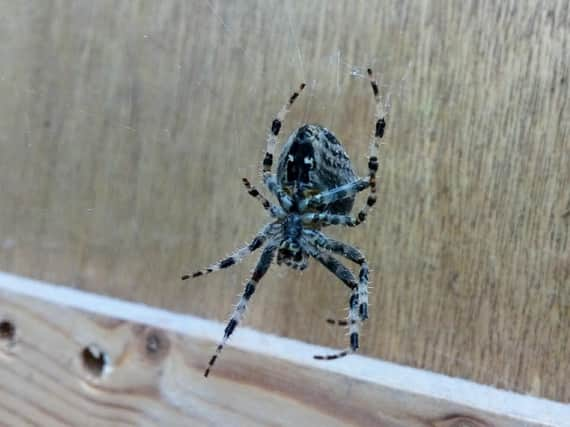Pensioner's unwanted new tenant is surfing the web


Mr Barry Fletcher (85) says he is keeping a close eye on the amazing arachnid, which he believes is a false widow spider, said to be one of few spider species in this country capable of causing a painful bite to humans.
The spider is currently residing in the downstairs toilet of Mr Fletcher's home in Celia Street, Brunshaw, several days after he first deposited it in his garden.
Advertisement
Hide AdAdvertisement
Hide AdThe false widow species made the national news recently when an infestation forced the closure of four schools in London. One was also responsible for biting and causing a '50p-sized hole' in the leg of a businessman from Droylsden, Greater Manchester.
However, well-travelled Mr Fletcher, who worked around the world in his younger years, is keeping a watching brief on his new tenant for the time being.
He said: "I first spotted the spider on Friday and didn't like the look of it so I put it out in the garden. However, it appears to have returned and made itself a nice little web in my downstairs w.c.
"I've had a look on the internet and it looks very similar to a false widow spider, which I believe is poisonous. I contacted Burnley Council for some advice but they said spiders are not their responsibility."
Advertisement
Hide AdAdvertisement
Hide AdMr Fletcher, who grows tropical plants at his home, is no stranger to wild and dangerous creatures. The former Accrington Grammar School pupil worked for five years in the silver mine industry of Canada's Yukon Territory.
He added: "I regularly saw bears, wolves and lynx when I was out in Canada, but not too many spiders. I don't like killing spiders because they prey on insects that eat my plants. I will keep a close eye on it for the time being, and I think I will just use my upstairs toilet for now."
The false widow originates from the Canary Islands and Madeira. It is believed to have arrived in England in 1879, and has a reputation as one of the few local spider species which is capable of inflicting a painful bite to humans, with most bites resulting in symptoms similar to a bee or wasp sting. It has also been found in California and Chile.
The NHS advises that if you are bitten by a spider, wash the area with soap and water, and then use a bite spray or antiseptic cream to prevent infection.
Conservation charity Buglife said there is no proven link between spider bites and bacterial infection, while there are no proven cases of a false widow killing someone.